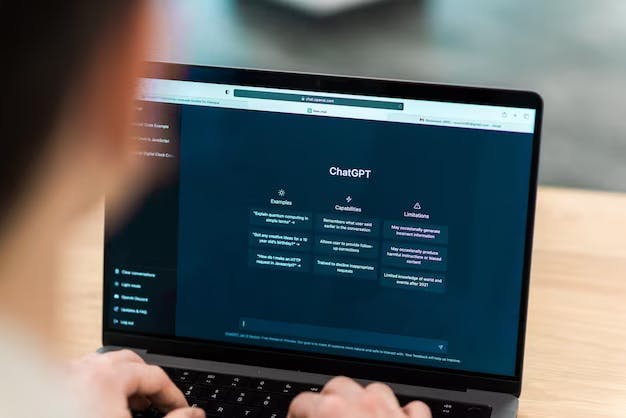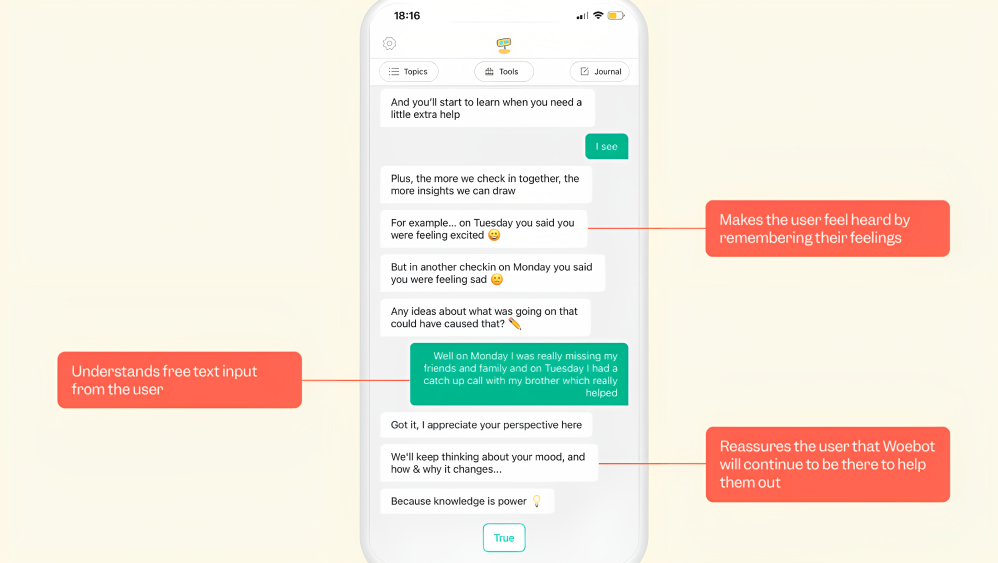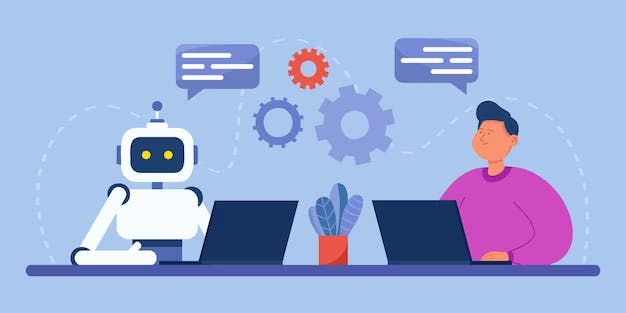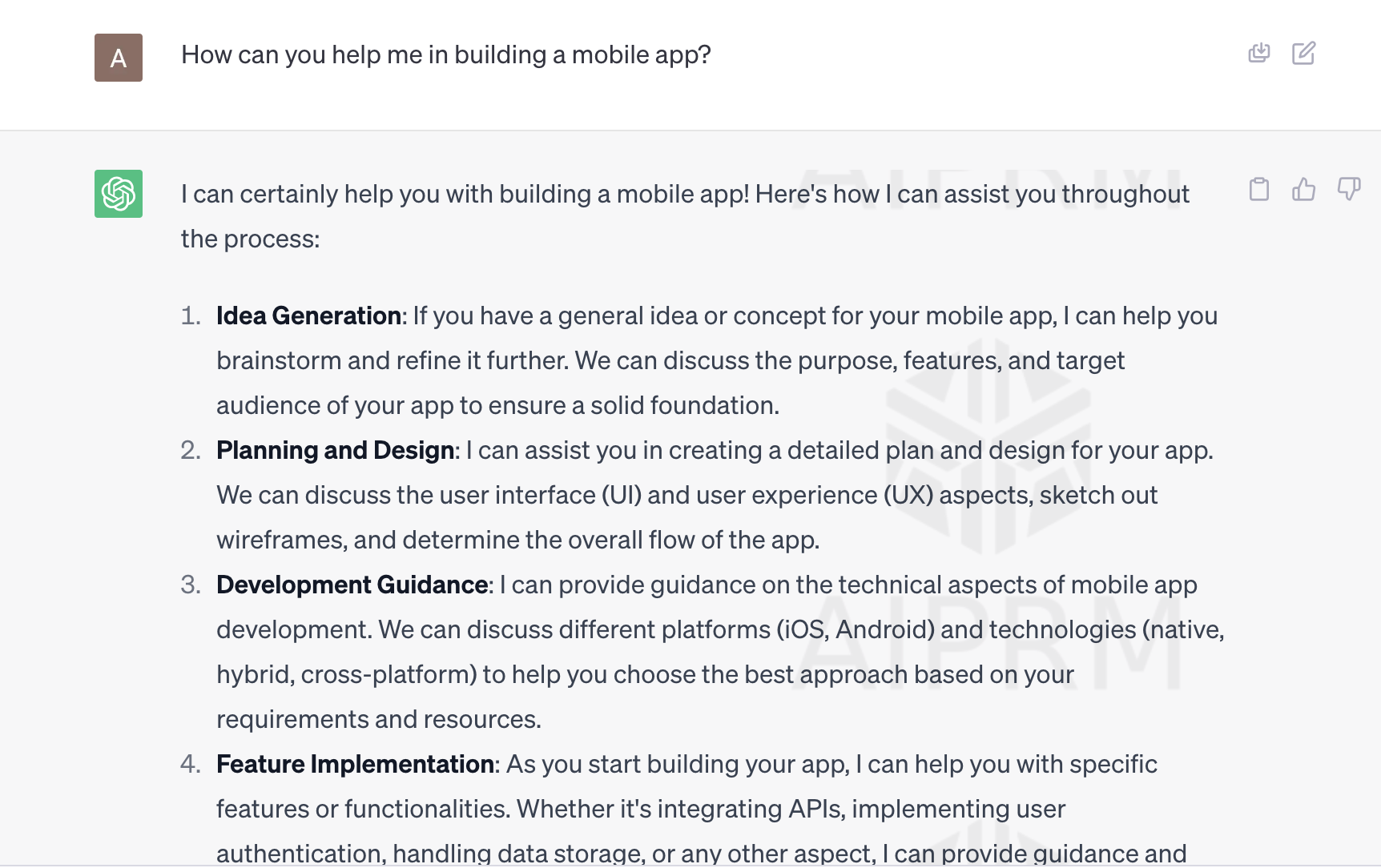Table of Contents
Benefits of Using ChatGPT for Mobile App Development
Author

Date

Book a call
Introduction
According to a report by Statista, the global mobile app revenue is projected to reach a staggering $935 billion by 2023.

Mobile applications and their role in today’s world need no new introduction. With a staggering 3.5 billion and more smartphone users worldwide, apps have become an integral part of our daily lives and activities. From getting groceries to ensuring our homes are secure while we are away, mobile applications are becoming more innovative with each passing moment. So are the end-user’s demands. As a result, companies are on a never-ending quest for new technologies that offer better user experiences and app functions to stay ahead of the competition. Artificial Intelligence (AI) is one such technology that has gained a lot of momentum over recent years. And AI has actually been quite helpful in creating more personalized and intuitive experiences for users. Created by OpenAI, ChatGPT is an AI-powered chatbot that is assisting developers to leverage cutting-edge AI capabilities in their mobile app development process.
In the following sections, we will explore the benefits of using OpenAI in mobile app development, highlighting how this technology can enhance user experiences, optimize app performance, and revolutionize the way we interact with mobile applications.
Why is ChatGPT Gaining Popularity for App Development?
Owing to its impressive capabilities and benefits, ChatGPT has quickly turned into a sensation in the app development industry. A quick look at some facts and examples show us the reason behind this popularity.

- Conversational Experience Like Never Before: ChatGPT leverages state-of-the-art Advanced Natural Language Processing (NLP) techniques to generate human-like text responses. It understands user queries, processes natural language inputs, and provides meaningful and contextually relevant responses. Developers utilize this advanced capability as a valuable tool for creating conversational experiences within mobile apps.
- Trained on Massive and Diverse Information: OpenAI has trained its language models on massive datasets, including a diverse range of internet text. This extensive training enables ChatGPT to exhibit a broad understanding of various topics, making it capable of providing accurate and informative responses. Developers can tap into this knowledge base to enhance the functionality and intelligence of their mobile apps.
- Saves a Lot of Time and Money: Building complex language models from scratch can be a time-consuming and resource-intensive. However, pre-trained models like ChatGPT eliminate the need to start from square one. Developers can save significant time and effort by leveraging these models and focusing on other critical aspects of app development, resulting in cost savings and quicker time-to-market.
- A Quickly Growing Developer Community: OpenAI's commitment to openness and collaboration has led to a vibrant developer community around ChatGPT. This community actively shares knowledge, best practices, and innovative use cases, fostering a collaborative environment for app development. Developers can leverage this community support to gain insights, troubleshoot challenges, and accelerate app development.
- Giving a Powerful Boost to User Engagement: By integrating ChatGPT into mobile apps, developers can create interactive and engaging conversational interfaces. This results in higher user engagement and longer app usage sessions. Users can have meaningful conversations with the app, ask questions, seek recommendations, and receive personalized responses. This increased engagement leads to improved user satisfaction and loyalty.
- Lots of Future Potential: OpenAI continues to enhance and advance its language models, including ChatGPT. As these models evolve, they will offer even more sophisticated capabilities and integration possibilities for mobile app development.
- Some Real-world Examples: ChatGPT has been successfully integrated into various mobile apps, demonstrating its value and potential. For instance, Woebot, a mental health app, utilizes ChatGPT to provide users personalized therapy sessions and support. Another example is Replika, an AI chatbot app that employs ChatGPT to offer conversational companionship and emotional support.
What Does the Future of Mobile App Development with ChatGPT Look Like?

As the capabilities of Large Language Models (LLMs) like ChatGPT continue to advance, the possibilities of developing mobile apps with these technologies looks promising.
- Smarter Virtual Assistants: ChatGPT can create highly intelligent virtual assistants that can understand complex queries, perform tasks, give personalized recommendations, and adapt over time. These assistants will become more conversational, intuitive, and be able to deliver excellent user experiences as language models advance. ChatGPT is now being used in sectors such as healthcare to create virtual health assistants for remote patient monitoring and medical information.
- Natural Language Interfaces: OpenAI's language models, such as ChatGPT, are leading the way for natural language interfaces in mobile apps. Instead of relying on traditional graphical user interfaces (GUI), users can interact with the app using conversational language. This shift allows for more intuitive and accessible app experiences, as users can simply ask questions or give commands in natural language, and the app can understand and respond appropriately. Natural language interfaces will make mobile apps more inclusive and user-friendly.
- Personalization and Contextual Understanding: ChatGPT's ability to understand context enhances personalized mobile app experiences. As language models improve, ChatGPT can better understand user preferences, needs, and habits. This allows for tailored recommendations, content, and services, which enhances user satisfaction and engagement. For example, ChatGPT handles queries in customer support, reducing response times and improving satisfaction.
- Multi-modal Integration: ChatGPT can be integrated with computer vision and audio processing to create immersive mobile apps. An example of this would be an app for image recognition that uses ChatGPT to describe the object in natural language. Similarly, voice-enabled apps can use ChatGPT for intelligent speech recognition and response generation. This integration makes apps more versatile.
- Improved Language Understanding and Generation: OpenAI continues to refine and enhance its language models, resulting in improved language understanding and generation capabilities. As a result, ChatGPT will become more proficient in handling complex queries, understanding nuanced language nuances, and generating high-quality responses. This advancement will enable mobile apps to provide more accurate, contextually aware, and human-like interactions, further blurring the line between human and machine communication.
- Efficient Developer Tools and APIs: OpenAI is investing in developer tools and APIs to facilitate the integration of ChatGPT into mobile app development workflows. These tools simplify the process of utilizing ChatGPT, making it more accessible and convenient for developers to leverage its capabilities. As a result, we can expect an increase in the number of apps integrating ChatGPT, leading to a wider range of innovative and intelligent mobile experiences.
Benefits of ChatGPT in Mobile App Development
ChatGPT integration helps enhance mobile applications in a number of ways.

- Improved Natural Language Understanding: ChatGPT models, such as OpenAI's GPT-3, have advanced NLP and understanding. With 175 billion parameters, it responds accurately to complex queries. Companies have integrated NLP-powered chatbots into mobile apps, enhancing user experience. A great example would be Duolingo, a language learning app that added a chatbot to improve user engagement and retention.
- Better User Experience: Mobile apps with integrated ChatGPT offer personalized customer support, such as account inquiries and transaction history, reducing the need for separate customer support. ChatGPT can also act as a virtual assistant, providing real-time information about flight schedules, recommending local attractions, assisting in hotel bookings, and suggesting personalized itineraries for a more interactive experience.
- Language Translation: Mobile apps catering to a global user base can leverage ChatGPT for language translation. Users can communicate in their native language, and the app can translate their queries or responses, enabling seamless interactions and expanding the app's reach to a wider audience.
- Higher User Satisfaction: Studies have found that users interacting with chatbots powered by advanced NLP models reported higher levels of satisfaction compared to traditional rule-based chatbots. The ability of ChatGPT to provide meaningful and contextually appropriate responses contributes to this increased satisfaction.
- Real-time Assistance: ChatGPT can act as a virtual assistant within mobile apps, providing real-time support and guidance to users. It can answer frequently asked questions, provide recommendations, assist with troubleshooting, and offer personalized suggestions, thereby enhancing the overall user experience.
- Content Generation: ChatGPT can be used to generate dynamic and personalized content within mobile apps. For example, it can create customized product descriptions, generate relevant articles or blog posts based on user preferences, or even assist in creating user-generated content.
- Efficient Customer Support: Integrating ChatGPT into mobile apps can automate customer support processes. It can handle common inquiries, provide instant responses, and offer self-help options, reducing the workload on customer support teams and ensuring timely assistance to users.
- Continuous Learning and Improvement: ChatGPT models can be fine-tuned and updated regularly to improve their performance. This allows developers to adapt the language model to the specific needs and context of the mobile app, ensuring that it remains up-to-date and capable of handling evolving user requirements.
How Can GeekyAnts Help You with AI-integrated Mobile Applications?
According to a Forbes article, AI market size is expected to reach $407 billion by 2027. At GeekyAnts, we understand the competitive nature of modern businesses and the importance of streamlining processes to succeed. From automation of manual, repetitive tasks to improved user experiences, AI integrations are essential for transforming and boosting business operations.
With over a decade of web and mobile app development experience, our teams at GeekyAnts have hands-on experience in successfully implementing the latest AI-powered technologies to get the best out of your business. Having partnered with businesses of every scale, our AI-driven solutions are proven to increase business speed and productivity, while decreasing costs and turnaround time. Let us take for example, our ChatGPT-powered hiring platform, TopGeek. Using ChatGPT, TopGeek automates the hiring process for candidates and hiring managers by conducting initial interview rounds and evaluating and scoring written and verbal tests, saving precious time and manual intervention.
Conclusion
As AI evolves rapidly, companies must gear up and identify business aspects that require AI intervention. While concerns related to privacy, bias, and AI-dependence exist, recent surveys show that most business owners are optimistic about technology's positive impact. To know more about how your business can benefit from AI-powered tools, talk to our experts.





